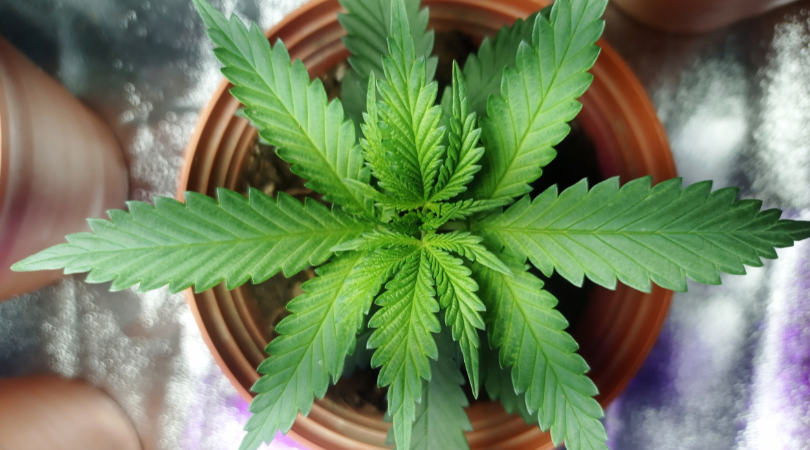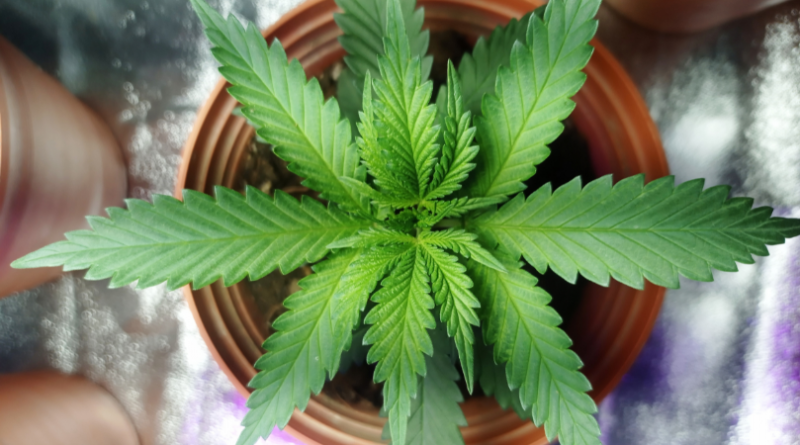Cannabis Addiction Much more likely in Adolescents, although not Mental Health problems

Adolescents are gone 3 times more susceptible to creating a cannabis addiction than adults, but may not be at increased risk of other mental health issues associated with the drug, finds new research led by UCL and King’s College London researchers.
The study, published today within the Journal of Psychopharmacology, found that adolescents who used cannabis were no more likely to have higher amounts of subclinical depression or anxiety than adults who use cannabis, nor were they more vulnerable than adult users to the associations with psychotic-like symptoms.
These findings build on another study by the same team, published recently in Psychopharmacology that found adolescents weren't more susceptible to associations between chronic cannabis use and cognitive impairment.
Lead author Dr Will Lawn said: “There is a lot of concern about how the developing teenage brain might be more susceptible to the long-term results of cannabis, but we did not find evidence to aid this general claim.
“Cannabis addiction is a real issue that teenagers should be aware of, as they appear to be much more vulnerable to it than adults.
“On the other hand, the outcome that cannabis use has during adolescence on cognitive performance or on depression and anxiety might be weaker than hypothesised.
“But we also replicated previous work when someone becomes hooked on cannabis, that may increase the harshness of subclinical mental health symptoms. Given adolescents will also be at a greater risk of obtaining difficulties with mental health than adults, they must be proactively discouraged from regular cannabis use.”
The findings in both papers range from CannTeen study, funded by the Scientific research Council, that is comparing the results of regular cannabis use among adolescents and adults, while also comparing to age-matched controls , a completely novel design.
The study involved 274 participants, including 76 adolescents who used cannabis someone to seven days per week, alongside similar amounts of adult users, and teenage and adult control participants, who all answered questions regarding their cannabis use during the last 3 months and responded to questionnaires commonly used to assess the signs of mental ill health. The cannabis users within the study, on average, tried on the extender four times each week. The adolescent and adult users were also carefully matched on gender, ethnicity, and kind and strength of cannabis.
The researchers found that adolescent cannabis users were three and a half times as likely to develop severe ‘cannabis use disorder’ than adult users, a finding which is in line with previous evidence using different study designs. Cannabis use disorder is defined by symptoms such as, amongst others: cravings; cannabis use adding to failures in school or work; heightened tolerance; withdrawal; interpersonal problems caused by or exacerbated by cannabis use; or planning to reduce without success. They found that 50% from the teenage cannabis users studied have six or more cannabis use disorder symptoms, qualifying as severe cannabis use disorder.
Among people of any age, previous studies have discovered that roughly 9-22% of people who try the drug develop cannabis use disorder, and that risk is higher for people who tried it at a younger age. The elevated risk of cannabis addiction during adolescence has been robustly replicated.
The researchers say that adolescents is much more susceptible to cannabis addiction because of factors for example increased disruption to relationships with parents and teachers, a hyper-plastic brain and developing endocannabinoid system , as well as an evolving feeling of identity and shifting social life.
Adolescent users were more likely than adult users or adolescent non-users to develop psychotic-like symptoms, but the analysis says it is because all adolescents, and all sorts of cannabis users, may newly develop psychotic-like symptoms, rather than cannabis affecting the teenagers differently to adults. In other words, there wasn't any adolescent vulnerability, as the increased chance of psychotic-like symptoms was an additive effect , rather than an interaction between age and cannabis use. They say this fits in with prior evidence that cannabis use could raise the likelihood of developing a psychotic disorder for example schizophrenia, but they warn their study didn't investigate the chance of clinical psychosis or schizophrenia.
The researchers discovered that neither teenage nor adult cannabis users were more prone to develop depressive or anxiety symptoms than non-users. Only the adolescents that have severe cannabis use disorder had worse mental health symptoms, however the researchers caution that the small sample size with this group limits their confidence in this finding.
The separate study published in Psychopharmacology discovered that cannabis users weren't any more likely to have impaired working memory or impulsivity. Cannabis users were more prone to have poor verbal memory ; this effect was the same in adults and teenagers, so again there wasn't any adolescent vulnerability. However, they caution that cannabis use could impact school performance throughout a key developmental stage of life.
The researchers caution these findings were cross-sectional , and that longitudinal analyses of methods their participants changed with time are ongoing.
Senior author Professor Val Curran said: “Our findings suggest that schools should be teaching pupils much more about the risk of addiction to cannabis, that has been neglected in drugs education. Becoming hooked on cannabis is a serious issue in itself, however it can also increase the likelihood of other mental health issues. Teenagers should therefore learn of the greater risk of addiction.”
1. Will Lawn, Claire Mokrysz, Rachel Lees, Katie Trinci, Kat Petrilli, Martine Skumlien, Anna Borissova, Shelan Ofori, Catherine Bird, Grace Jones, Michael AP Bloomfield, Ravi K Das, Matthew B Wall, Tom P Freeman, H Valerie Curran. The CannTeen Study: Cannabis use disorder, depression, anxiety, and psychotic-like symptoms in adolescent and adult cannabis users and age-matched controls. Journal of Psychopharmacology, 2023; 026988112211089 DOI: 10.1177/02698811221108956

